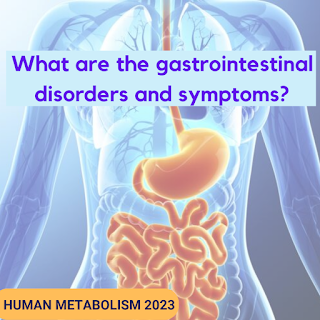What are the gastrointestinal disorders and symptoms?
Celiac
disease may be a multifactorial gastrointestinal disorder. That’s an
elaborate manner of claiming that whereas it's a genetic basis, it's triggered
by factors within the setting. Celiac is caused by a response reaction to
protein - proteins found in grains like barley, rye, wheat, and their hybrids. Once
someone with disorder consumes protein, it triggers a reaction that destroys
villi, little hair-like projections on the liner of the tiny internal organ.
When the villi are
destroyed, the small intestine is unable to effectively absorb nutrients,
vitamins, and minerals from food. This leads to malnutrition
and may result in several serious health issues, as well as infertility,
permanent harm to the tiny internal organ, and even the massive “c” intestinal
cancer. That’s why disorder, and obtaining properly diagnosed for celiac is
thus necessary.
Symptoms of celiac
disease involve the digestive
system however they'll even be seen in alternative areas of the body. Some
people might not show symptoms the least bit. Its price noting, however, that
adults and youngsters usually exhibit different symptoms. Biological process
symptoms shown by kids as well as adults with disorder embody awful-smelling
stool, symptom or constipation, abdomen pain, abdominal bloating, vomiting, and
weight loss.
Celiac patients,
whether or not kids or adults, will have each biological process and
non-intestinal signs and symptoms. These are symptoms that are outside of the
intestines, symptoms like headaches, fatigue, joint pain, iron-deficiency, skin
rashes, hair loss, irregular period, miscarriage, sterility, weak bones,
tooth discoloration and even seizures. As you'll be able to see, there are several
symptoms of celiac disease.




Comments
Post a Comment